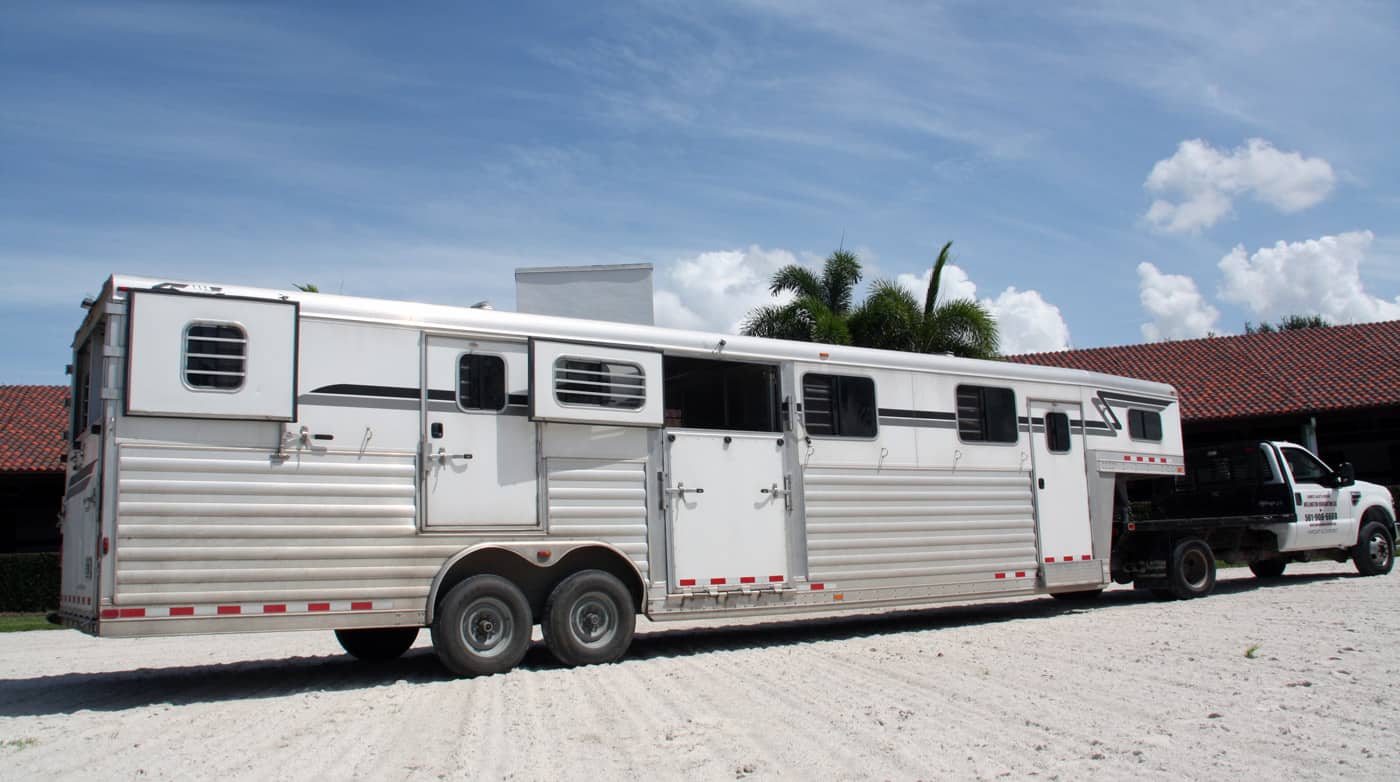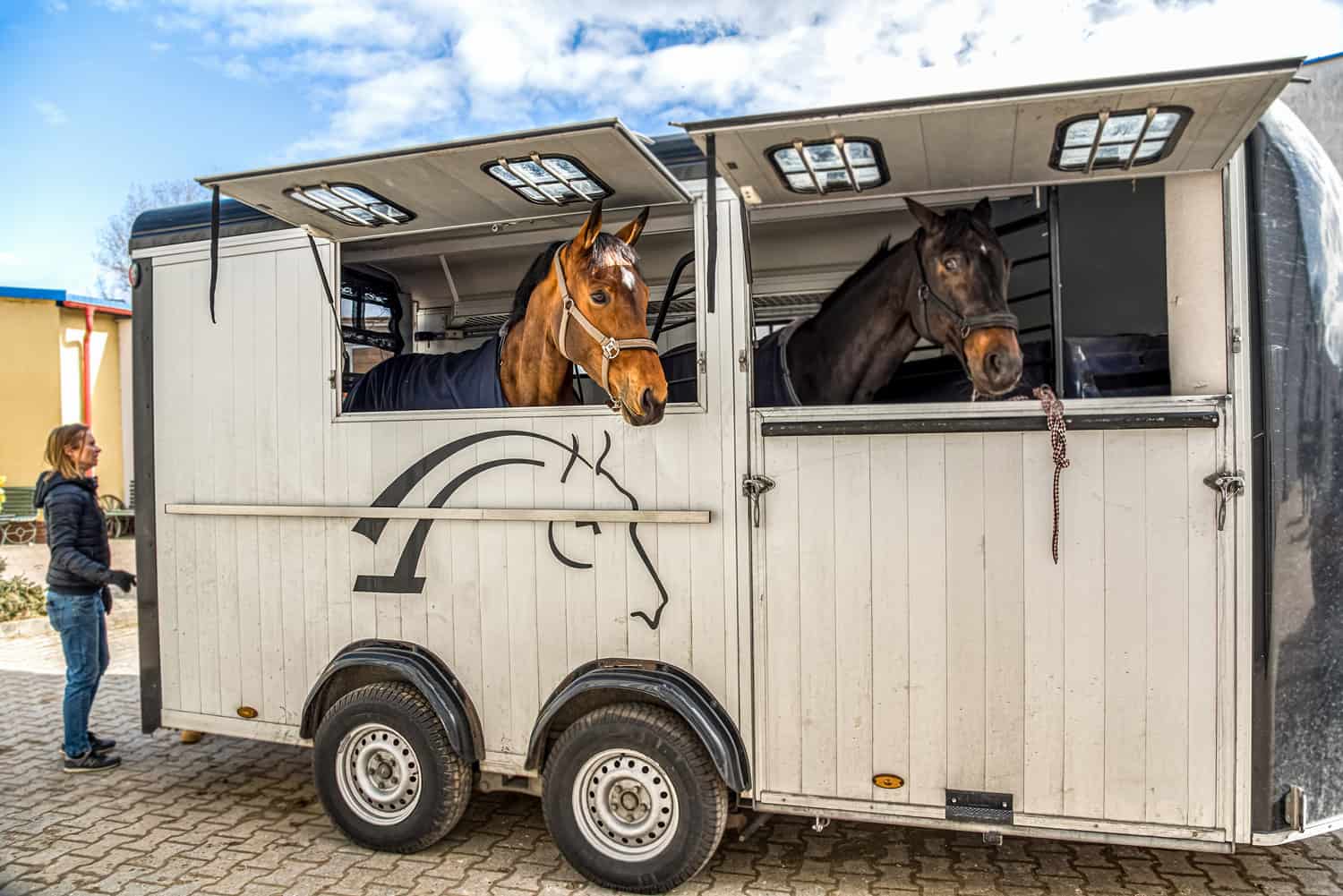Horse Transportation Insurance Coverage 101
Horse transportation insurance is a crucial protection to have to lower transportation risks for professional horse transporters. The transport of live animals is not covered under regular insurance policies, so truckers are at major liability risks without the right policy in place if something goes wrong.
Get Your Equine Insurance Quote
What Horse Transporters Insurance Covers
Equine liability insurance can include multiple coverage options, and the risks are tailored to the type of animal you’re transporting. You’ll find that most livestock plans come with two main options:
- Broad
- Limited
Broad coverage protects you in the event that livestock (in this case, a horse):
- Dies during transport
- Sustains injury during transport
Broad coverage will expand to cover most circumstances where the animal is injured during the transportation process. However, you’ll pay more for broad horse transportation insurance than you would with a limited plan.
Limited insurance options outline specific circumstances in which something may happen to a horse during transport.
While limited coverage will consider most instances where a hauler needs to file a claim, there’s always the risk that something happens to the horse during transport that doesn’t fit within the confines of these very specific circumstances.
Additional Property Coverage for Haulers
Your insurer is likely to offer additional coverage options that you’ll want to consider, such as:
- Carcass removal. If a horse does die during transport, you’ll need to pay to have the carcass removed and disposed of properly. Insurance will cover these costs if you sign up for the carcass removal add-on.
- Coverage after transport. Injured or dead livestock found after transit will have the added cost of having to remove the horse. Coverage after transport removes this potential liability for you.
These insurance additions aren’t required, but they’re something to consider if you’re trying to limit your liability when hauling horses.
What Can Happen During Horse Transportation?
Transporting any type of livestock comes with inherent risks, and some of these risk factors include:
- Death. In the worst-case scenario, a horse can die during transport. If the horse is an award-winning racehorse, the liability can be astronomical.
- Escape. An animal may escape during transport. Even if the animal is found and brought back to the vehicle, the cost of the pursuit can be expensive and is a major liability for the trucker.
- Equipment issues. The deck of the trailer may collapse under the weight of the horse or malfunction in some way, causing injuries to the animal.
- Injuries. Animals can suffer heatstroke, hurt their legs getting in the container or become injured in some other way.
Professional horse transporters may also get into an accident, leading the horse to sustain injuries, die or even escape. Livestock of any kind, including horses, are delicate and can be injured easily during transport.
Coverage may include liability, injury, medical payments and more.
Meeting equine transportation insurance requirements limit your risk of liability during the transport of these animals.
Horse Transportation Insurance Requirements

National Horse Carriers Association is committed to the highest standards of horse transportation. The Association states that registered horse carriers will declare the minimum horse value to lower shipping rates for customers.
However, the declared value of the horse must be noted on the bill of lading.
Requirements to haul horses include:
- DOT registration
- State registration (state-specific)
- Meet stringent safety requirements
Horse transportation insurance is a must-have for any transport company that hauls horses. The risk during the transport of livestock is always higher, and it’s crucial that you meet any state equine transportation insurance requirements to lower your liability.
What Happens Without Horse Haulers Insurance Coverage?
Traditional trucking liability insurance will not cover equine or livestock transport. Instead, the owner of the hauling company will be liable for all injuries or losses during transportation. Full liability is shifted to the transport company if operating without horse insurance.
When transporting horses as a commercial activity, you should have adequate insurance.
Trip Transit Insurance
If a horse is being transported internationally, there’s the option of taking out “trip transit insurance.” These policies are for a specific single horse shipment and:
- Begins when the horse is loaded
- Ends when the horse is unloaded
Trip transit insurance is one of the most common options when horses are shipped internationally for shows or races. These policies are customized and can have very high limits that reflect the true cost of the horse.
Things to Consider When Transporting a Horse
Horse transportation is a risky business because the horse loaded may be sick or injured when they’re loaded onto the truck. Owners are required to provide health documents for the horse to show they’re in good health at time of transport.
When dealing with a mortality claim, the insurer will ask whether the horse had a clean health history.
If this documentation wasn’t provided prior to the ride, the claim may be denied. Haulers should ask owners to provide documentation (and a vet certificate for high-value animals) to reduce the risk of a claim being denied because of a previously known health condition.
Transport companies, such as Brook Ledge, will outline the insurance that they have when using their service.
Brook Ledge has a $5,000 limit for all horse mortality, but owners can also use their own travel insurance for their horses. Owners will often be required to contact their insurer to cover any additional losses over the $5,000 limit.
Commercial truck transporters should have equine transportation insurance to protect against liability claims if the animal is injured in transport.


